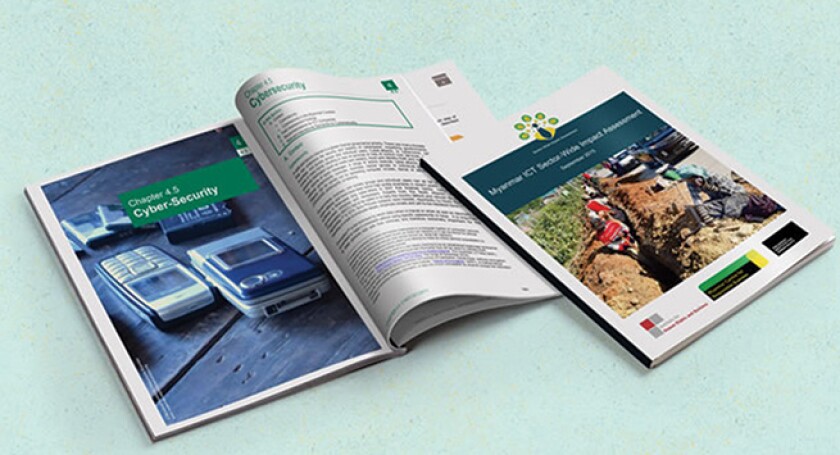The Myanmar Centre for Responsible Business (MCRB) published a sector-wide impact assessment (SWIA) on the information and communication technology (ICT) sector in late September, just prior to the publication of this edition of the TowerXchange Journal. This assessment highlights some of the actual and potential positive and negative human rights impacts that the rapid growth of mobile telecoms, internet and other ICTs can have on Myanmar, and the policy gaps that need to be filled. It makes recommendations to government, companies and other stakeholders.
Five main themes emerge from the ICT SWIA:
1. Gaps in the policy, legal and regulatory framework: Modern laws do not exist for most of human rights risks posed by the ICT sector in Myanmar, and in particular lawful interception, data privacy, access to information, certification bodies, cybersecurity, data protection and cybercrime.
2. Access: The Ministry’s welcome transparent and technocratic approach to liberalisation since 2013 is already supporting a rapid extension of access and effective competition to bring down prices. This is a good basis for further work to achieve universal accessibility of ICTs, including local language content and standardised Unicode fonts that allow full searchability and access to information.
3. Online “Digital Dangers”: These include risks to data privacy, various forms of cybercrime, including child sexual abuse images and revenge porn, cyberbullying and stalking, and “hate speech”. Other digital dangers include the wider consequences of Government-ordered mobile and Internet network shutdowns and the selective blocking of websites.
4. “Offline” human rights issues: As fibre and telecoms masts are rolled out rapidly across the country, there is inconsistent respect for labour rights and safety by multiple layers of subcontractors. This comes at a time when Myanmar labour law is rapidly changing and neither workers nor employers are well informed about basic labour rights protections. Other ‘offline’ challenges include inadequate stakeholder engagement and management of land acquisition.
5. Will ICT exacerbate or address divisions in society? ICT has the potential to be used to impact positively or negatively on the rights of groups at risk. For example, people with disabilities can access new services or income generation opportunities from which they were previously excluded. However minorities can also suffer from ICT misuse. For example, the SWIA and other reports have identified disturbing patterns of anti-Muslim “hate speech” on social media.
Speaking at the launch of the assessment in Yangon, Vicky Bowman, Director of MCRB said: “The ICT sector is connecting and transforming Myanmar. It brings with it many opportunities for the enjoyment of human rights, such as the right to education, health and information, and the right to participate in cultural life and government. But the headlong rush to roll out network countrywide brings challenges, particularly in the absence of effective enforcement labour and safety laws, or adequate policy and legal frameworks. Those gaps are compounded by most users’ lack of ICT experience– ‘digital literacy’ - which can put themselves and others at risk’.
The report contains several important insights and recommendations pertinent to tower companies, addressing issues such as tower construction employee rights, contracts and remuneration; health and safety; employment of ethnic minorities by towercos and their subcontractors; processes to secure leases and variations in rental rates and terms; and community consultation and engagement.
You can download the full ICT Sector Wide Impact Assessment at here.

